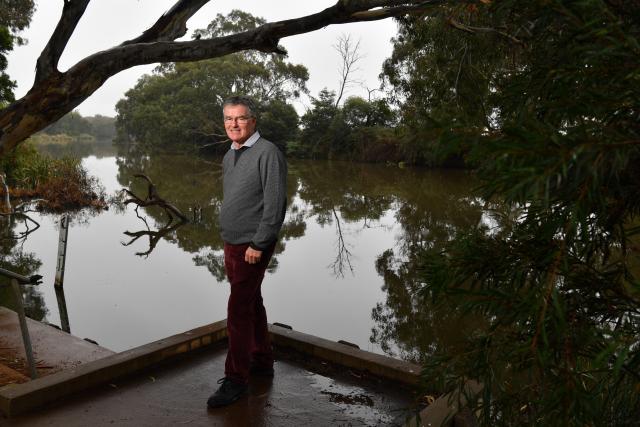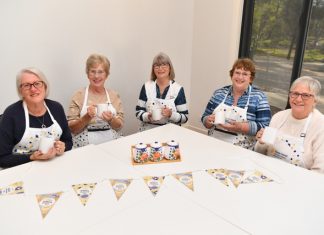Riverkeeper John Forrester said the evidence of a moderate population of breeding platypus in the Werribee River is “very positive”.
In collaboration with Greater Western Water, and the Australian Platypus Conservancy, a live trapping survey was conducted at the Werribee River in February, and the findings were released on Tuesday, June 28.
“We use fyke nets, they’re rather like a long stocking with hoops inside it…they’re quite safe, there’s a little bit of water at the bottom of the net and there’s quite a lot of fresh air,” he said.
“They stay in the net until they’re released at the end of each hour, the scientist comes back and checks the net.
The aim of the research is to gain an indication of how healthy the animals are and three platypus were found in the Werribee River just below the Princes Freeway bridge.
“We found an adult male, and then we found a young female, so that’s good news because there are the both sexes there,” Mr Forrester said.
“Then we found a young baby male, so there’s young ones being born so really, that’s a great highlight.
“Particularly since their total numbers have declined in the last 25 years, and recently they were classified just last year as vulnerable in Victoria.”
Mr Forrester said residents in Wyndham are often surprised to learn the municipality is home to the native mammal.
“No one sees them because they’re a wild animal, so they’re not obviously going to sit up on a rock and look pretty for you or I to take photos of them,” he said.
“Because they’re also very aware that we might hurt them, so they do stay away and their active times are at night, so you don’t really see them.”
To help protect the platypus population, Love Our Street 3030 clean up group coordinator Lisa Field said it’s important to be mindful of littering.
“Anyone can pick up some of the rubbish they’re seeing, and particularly looped rubbish you know hair ties, plastic bands or the rings,” Ms Field said.
“You see one of them close to the river and then you get a bit of rain and it rushes in. When I pick up one close to the river, I think ‘well, I think i’ve saved a platypus today’, because they are a real threat.”







